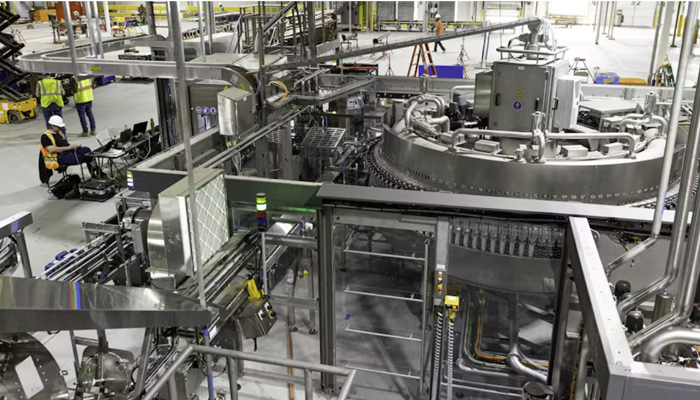
Innovation in the beverage world often starts on the shelf—with bold flavors, sleek packaging, or an entirely new category altogether. But behind every eye-catching bottle or can is a processing system and line that has been pushed, stretched, or completely reimagined to bring that innovation to life.
This evolution is especially evident at companies like Westrock Coffee, whose rapid growth in the ready-to-drink (RTD) space offers a powerful case study on the ripple effects of product innovation across an entire plant.
RTD Growth: Fueling a Need for Agility
As Food Processing recently spotlighted, Westrock Coffee’s continued investment in RTD beverages has led to sweeping changes in its operations and processing systems. With demand surging for cold brews, protein-enriched beverages, and other shelf-stable drinks, traditional processing lines often need to be retrofitted—or in some cases, replaced—to meet new requirements for flexibility, throughput, and food safety.
Beverage brands everywhere are navigating similar territory. It’s not just about keeping up with demand. It’s about staying ahead of it—designing operations with future formulas, packaging formats, and retail channels in mind.
The Hidden Complexity of ‘Simple’ Innovation In Processing Systems
Launching a new beverage SKU can trigger deep operational shifts. Is the plant equipped for hot-fill, cold-fill, or aseptic? Will the line need to handle a wider range of viscosities or pH levels? Can packaging machinery keep up with short runs or seasonal variations?
At Westrock, answering these questions led to a significant overhaul of its processing infrastructure, supported in part by a suite of ProMach product brands. From the thermal processing power of Allpax to the high-speed, hygienic filling systems from Fogg, and labeling and coding solutions from ID Technology, Westrock’s success illustrates the need for a tightly integrated, future-ready operation.
Cross-Functional Collaboration: The New Standard
What’s clear is that innovation today demands more than just great ideas—it requires tight collaboration between product developers, operations leaders, and equipment partners. It also means working with companies that understand the full lifecycle of a beverage line, from upstream mixing to downstream labeling and palletizing.
ProMach brands like Statco-DSI—a leader in process integration—and Allpax, a pioneer in retort and sterilization systems, are helping customers like Westrock bridge the gap between concept and execution. And with a modular approach that allows processors to scale intelligently, they’re empowering plants to make bolder bets on innovation without risking production stability.
Where Do We Go From Here?
The takeaway for food and beverage manufacturers is clear: as product innovation accelerates, the agility of your plant will define your ability to compete. It’s no longer enough to rely on legacy systems or incremental upgrades. Whether it’s a shift to plant-based beverages, low-acid cold brews, or functional drinks with unfamiliar ingredients, processing lines must be engineered to adapt—and to do so quickly.
At ProMach, we’re proud to support companies like Westrock as they redefine what beverage operations can look like with beverage processing systems. And as the line between food science and engineering continues to blur, we’ll be right there—building systems that make innovation not only possible, but profitable.
Explore More:
Curious how integrated processing and packaging solutions can power your growth? Learn more at ProMachBuilt.com or explore how Allpax, Fogg, and Statco-DSI are helping beverage innovators scale up smarter.
This post was inspired by insights from Food Processing‘s article, “Beverage Innovation Begets Process Renovation”, which highlights how companies like Westrock Coffee are evolving their operations to support growth in the ready-to-drink beverage space.

